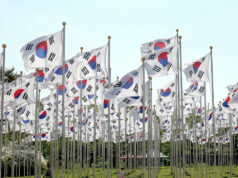VIETNAM fired a warning shot against Philippine moves to impose temporary duties on its cement products, reminding Manila that free trade is the prevailing trend in the Association of Southeast Asian Nations (ASEAN) and that any such duties must follow World Trade Organization (WTO) rules.
“I think we have to look into bigger circumstances… ASEAN is one market. The market is open to everyone… There is demand (and) there is supply,” Vietnamese Ambassador to the Philippines Ly Quoc Tuan said in an interview with BusinessWorld in Pasay City.
“Second if you look at that, we have to check how the WTO requirement is liberalizing the business for everyone,” he added.
The Department of Trade and Industry (DTI) has issued a preliminary finding on its investigation into surging cement imports, with Vietnam identified as a major source of the construction material, but concluded that such safeguards may threaten the cement supply.
Mr. Ly also cited a 2017 WTO ruling on Vietnam’s appeal against Indonesian safeguard measures on iron and steel. He noted that in the Philippine case, cement is unbound — meaning that base rates were defined by WTO members as the most-favored nation applied tariff rate — and are not subject to tariff concessions under WTO rules.
He added that any Philippine measures against Vietnamese cement do not qualify as a safeguard measure under Article 1 of the WTO Safeguards Agreement, which outlines the permitted emergency actions that authorities can adopt on the imports of particular products.
The DTI noted in its preliminary report the Vietnamese position that “safeguard measure on cement imports from Vietnam will not be in the interest of the Filipino consumers because it may result in a shortage of cement and higher prices.”
Vietnam has also urged the government to collect reliable and accurate data in its investigation.
Vietnamese producers such as Vicem Hoang Mai Cement Joint Stock Co. (JSC) and Vietnam Trading Investment and Import-Export JSC have told the DTI that the surge in cement imports by the Philippines was due to increased demand.
“The cement industry in the Philippines has made great efforts to produce cement that meets domestic demand, but the demand in this market is too great so imports are essential. The import volume into this market is offset by the shortage, contributing to satisfy domestic demand,” Vicem was quoted as saying by the DTI when it commented for the investigation.
Vietnam Trading Investment also said: “Local cement manufacturers do not suffer from serious injury, they only minimize their profit. The end-users and the government can save more for their projects,” according to the DTI report.
Ambassador Ly said the dispute over cement is still at a level that can be patched up with talks to find a solution “that is suitable for both.”
DTI data indicate that Vietnam was a top source of cement imports charged a P210 per metric ton provisional duty. — Janina C. Lim



